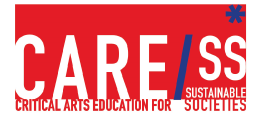As was demonstrated since the break out of the COVID-19 pandemic, there is a need to widen the access to quality education and support digital transformation in HEIs (UNESCO 2020). Especially in programs / courses / training courses that are addressed to educators. Training in-service and pre-service educators through digital pedagogy and digital modes of learning not only support their personal digital skills and competences but also their pedagogical competences in teaching in a digital environment and using a variety of digital tools.
The European Framework for the Digital Competence of Educators (DigCompEdu) will be an important underlying variable for the CARE/SS Project (RedeckerPunie & Punie Redecker, 2017).
Priorities
While distance learning degrees have seen an incredible growth in the last 20 years, the access to arts education in Higher Education has not really widened. This is attributed to the few fully online or blended bachelor degrees in education and to the centrality that the experiential component has in the disciplines of arts education (visual arts, music, theatre & dance) which for some is in dissonance with the very nature of eLearning. Up to recently there were very few pieces of literature or research discussing online or blended learning in the context of preservice teacher training or of master degrees or of continuous teacher development training courses in arts education. This has changed recently due to the COVID-19 lockdown that had a global effect to the way education has been carried. HEIs moved quickly to emergency remote teaching. However, not all arts educators were prepared to teach in an imposed distance- learning environment.
Public elementary & secondary schools did not move as quickly as HEIs did. The subjects that appeared to suffer most were those that had a strong experiential component, especially the arts. At the same time, it is important to highlight that the arts subjects are the most important ones in difficult times for empowering children to overcome emotional difficult situations, to build children’s resilience, to enhance understanding of others, to encourage engagement and participation leading to the development of sustainable societies. It is evident that education in the 21st c. needs to be radically revisited in terms of the objectives, knowledge, skills and competences it has to develop. Serving solely the economic growth can no longer be viewed as the ideal way of reconciling material progress with equity, respect for the human condition & common values &respect for the natural resources for present and future generations. Bell questions the sustainability of the global economy and stresses that unless the 21st c. education is viewed through a sustainability lens, we would be missing some of the most urgent elements it should address: peace, freedom, social justice, etc. Education through the arts focuses on human interactions and its social context rather than seeing arts as an independent and private symbolic space. The stereotypical view of the artist (or the learner in the arts) as autonomous, self-focused and neutral is thus challenged. Arts-producing and responding to arts are viewed as vehicles for identifying social issues (e.g. social inequalities) and thus serve as a means for promoting social justice, and - in some cases - for social and political activism. CARE/SS follows a post-modern philosophy, which embraces more pluralistic practices in arts education, especially as related to cultural and social issues.
Teachers face a range of changing educational demands & need support so that schools can retain highly qualified and motivated teachers who will provide learners with consistent, high-quality, equal educational opportunities that will enable them to reach their full academic potential. Overwork & lack of support are driving teachers in many European countries out of the profession much faster than they can be replaced. Overload also leads to neglecting important and challenging aspects of education. CARE/SS aims to respond to the above needs by focusing on supporting digital transformation through development of digital readiness, resilience & capacity in Higher Institutions responsible for teacher training to widen the access to quality arts training. A pedagogical framework will be developed specifically for arts education following a blended and a fully online option. Academics will be supported to develop innovative courses in arts education within undergraduate or postgraduate degrees or as continuous professional development courses adopting a transdisciplinary approach that focuses on socially engaged arts.

